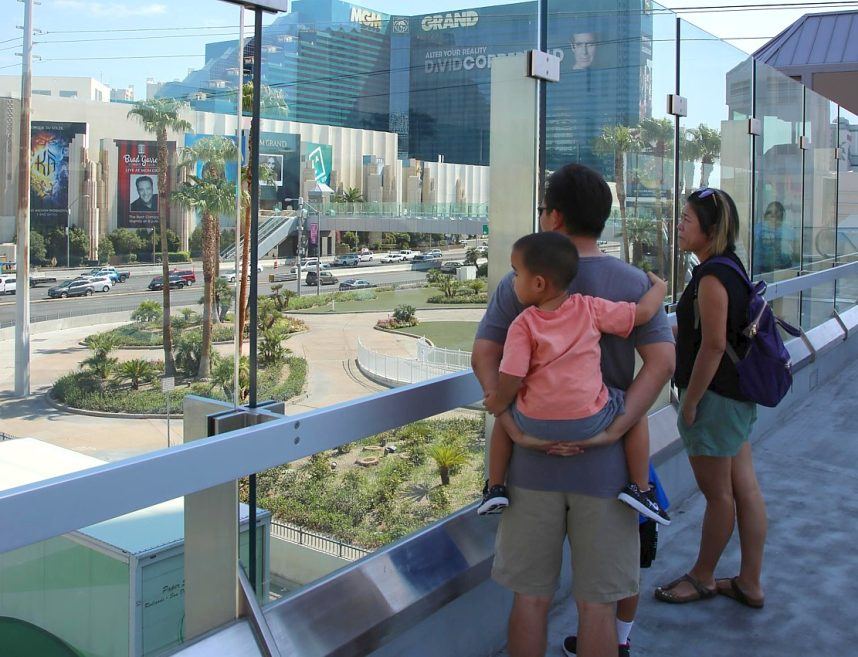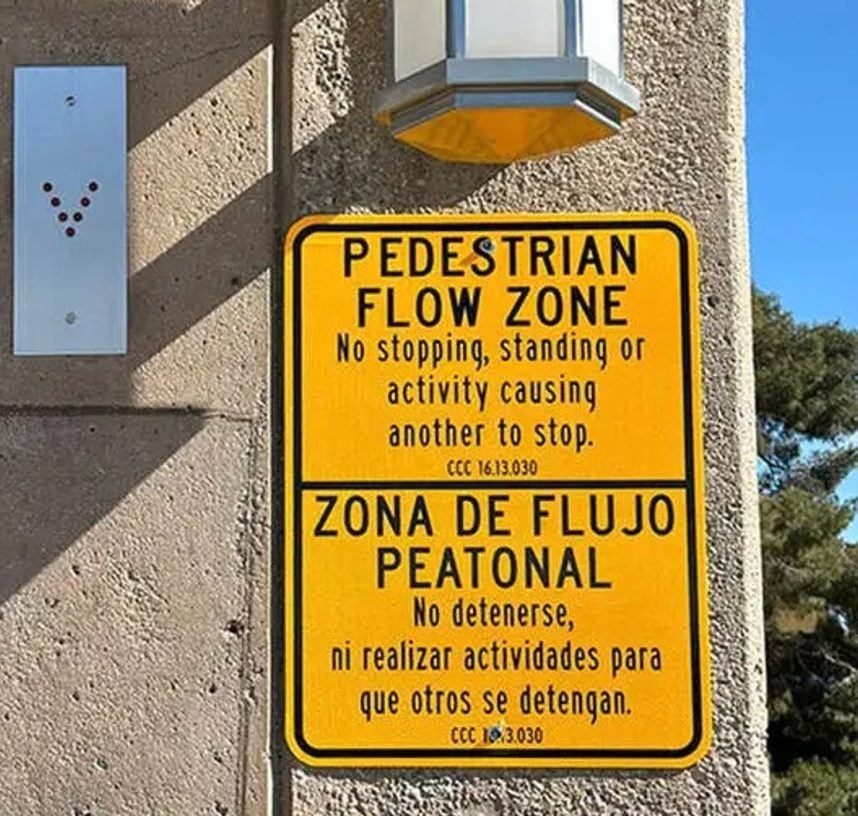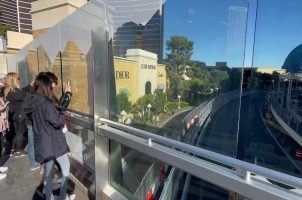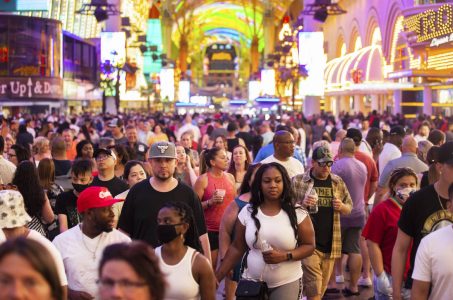ACLU Sues Vegas Over Pedestrian Bridge Standing Ban
Posted on: February 16, 2024, 04:40h.
Last updated on: February 16, 2024, 05:01h.
The ACLU of Nevada filed a federal lawsuit on Friday challenging the new Clark County ordinance that bans stopping or standing on the Las Vegas Strip’s 15 pedestrian bridges.

In a press release announcing its lawsuit, the civil rights organization called the ordinance “unconstitutionally vague,” claiming that it fails to accommodate protected First Amendment activities such as holding political signs or even stopping to take selfies.”
The ACLU sued on behalf of Brandon Summers, a violinist who has performed for tips on the Strip since 2009, and Lisa McAllister, who uses a wheelchair to get around due to a spine injury.
“Due to her disability, Plaintiff McAllister often must stop unexpectedly,” the lawsuit reads. “For example, she must stop when there is a mechanical malfunction with her wheelchair, her arms tire from using her wheelchair, or when her vision of her path is blocked by other people who are walking in front of her.”

Stop Stopping
The ordinance was passed by a unanimous vote of the Clark County Commission on Jan. 2. It establishes “pedestrian flow zones” on the bridges — and within 20 feet of adjoining escalators, stairs, and stairs — that make it unlawful to “stop, stand, or engage in an activity that causes another person to stop or stand.”
“The bridges were not designed for pedestrians to stop, stand or congregate,” Clark County Counsel Lisa Logsdon explained at the time. “The pedestrian flow zone is similar to pedestrian zones located in other large cities, such as New York City.”
Both the county, which has full jurisdiction over the Strip, and the Las Vegas Metropolitan Police Department have stated that selfie-takers would not be targeted. However, since they are not excluded by the ordinance’s language, the ACLU says, this violates the 14th Amendment as well, by inviting selective and discriminatory enforcement.
“Due process requires clarity about prohibited conduct and that laws are not selectively enforced,” ACLU of Nevada Executive Director Athar Haseebullah is quoted in the press release.
“The county has gone to great lengths to defend this terrible ordinance publicly,” Haseebulla said, calling the ordinance “foolish since its inception.”
Related News Articles
Las Vegas May Criminalize Stopping to View Strip from Pedestrian Bridges
Las Vegas Outlaws Standing Still on Pedestrian Bridges
ACLU Sues Fremont St. for Age Restrictions, Citing 1st Amendment Violation
Tupac Murder Testimony Could Crack Notorious B.I.G. Murder Case
Most Popular
Mega Millions Reportedly Mulling Substantial Ticket Price Increase
NoMad Hotel to Check Out of Park MGM on Las Vegas Strip
VEGAS MYTHS BUSTED: To ‘86’ Someone Was Vegas Mob Slang for Murder
Most Commented
-
End of the Line for Las Vegas Monorail
— April 5, 2024 — 90 Comments -
Mega Millions Reportedly Mulling Substantial Ticket Price Increase
— April 16, 2024 — 8 Comments -
Long Island Casino Opponents Love New York Licensing Delays
— March 27, 2024 — 5 Comments
















No comments yet